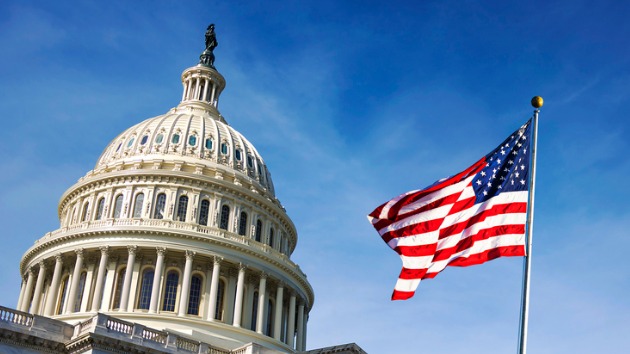Acting DC police chief criticizes 'tepid' Army response to Jan. 6 riots
uschools/iStockBy BENJAMIN SIEGEL, LUKE BARR and JACK DATE, ABC News
(WASHINGTON) — Washington, D.C.’s top cop said the assault on the U.S. Capitol exposed “weaknesses in the security of the most secure city in the country” during a closed-door congressional briefing on Tuesday.
“I was stunned at the tepid response from Department of the Army, which was reluctant to send the D.C. National Guard to the Capitol,” acting Metropolitan Police Department Chief Robert Contee told the House Appropriations Committee in written testimony obtained by ABC News. “While I certainly understand the importance of both planning and public perception — the factors cited by the staff on the call — these issues become secondary when you are watching your employees, vastly outnumbered by a mob, being physically assaulted.”
“I was able to quickly deploy my force and issue directives to them while they were in the field, and I was honestly shocked that the National Guard could not — or would not — do the same,” he added.
Contee spoke to the deadly toll of the Jan. 6 attack on the Capitol, noting that five people — including Capitol Police officer Brian Sicknick — died as a result of the siege. He also revealed that an MPD officer, whom he identified as Jeffery Smith, died by suicide afterward. He is one of two responding officers to die by suicide following the attack — the other being Capitol Police officer Howard Liebengood, according to Contee.
Among the more than 1,000 MPD officers who responded, 65 were injured during the riot, Contee also noted.
“Other harm from this traumatic day will be widely felt but possibly unacknowledged,” Contee’s testimony stated. “Law enforcement training neither anticipates nor prepares for hours of hand-to-hand combat. Even brief physical fights are physically and emotionally draining.”
The acting chief of the U.S. Capitol Police apologized to lawmakers during Tuesday’s briefing for not being more prepared for the attack.
“Let me be clear: the Department should have been more prepared for this attack,” acting Chief Yogananda Pittman told the House Appropriations Committee, in opening remarks obtained by ABC News. “We knew that there was a strong potential for violence and that Congress was the target.”
“I am here to offer my sincerest apologies on behalf of the Department,” she said in the remarks.
Pittman confirmed that the panel supervising the department, the Capitol Police Board, rejected a request from then-Capitol Police Chief Steven Sund two days before the riot for National Guard troops.
The Washington Post previously reported that the Capitol Police request was rejected by congressional security officials because they anticipated House and Senate leaders wouldn’t want troops stationed around the Capitol.
Capitol Police activated more officers to work on Jan. 6 in anticipation of violence — including a SWAT team and civil disturbance units — but “we did not do enough,” Pittman said.
Sund also asked permission to bring in the National Guard on Jan. 6, but was not granted authorization from the board “for over an hour,” Pittman told the House committee.
Pittman also called the attack on the Capitol a “terrorist attack by tens of thousands of insurrectionists determined to stop the certification of Electoral College votes, the Department failed to meet its own high standards as well as yours.”
“I do believe certain challenges the Department faced the day of the attack could have been overcome with additional preparation,” she said.
Pittman also said that once the Capitol was breached their focus turned to the safety of members and leadership.
A source familiar confirmed that the chiefs and assistant chiefs went silent on Jan. 6. Neither took control of the radio, the source said, and when officers were looking for leadership, there was none.
Capitol Police Union Chairman Gus Papathanasiou told ABC News that there is currently no vote of no confidence underway against the acting chief and senior department leadership.
“Officers have been calling for a vote of no confidence since Jan. 6,” Papathanasiou said. “At this time we have not initiated a vote of no confidence. Doesn’t mean we can’t think about it. There’s a big difference.”
Copyright © 2021, ABC Audio. All rights reserved.

